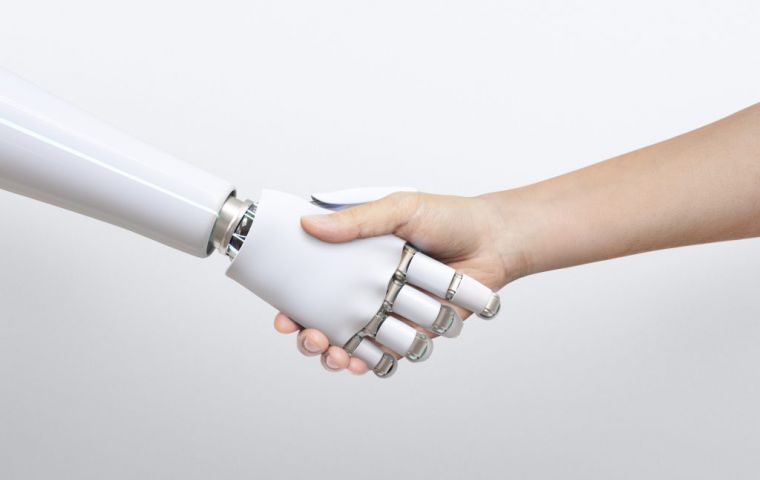MercoPress. South Atlantic News Agency
IMF fears labor market shock due to AI
 Gopinath found it “encouraging” that the G7 has formed a working group to study AI
Gopinath found it “encouraging” that the G7 has formed a working group to study AI International Monetary Fund (IMF) Deputy Managing Director Gita Gopinath Tuesday called for global rules to avoid the high social costs of massive job losses from the use of artificial intelligence, it was reported. “When it comes to AI, we need more than new rules,” she stressed.
According to the IMF, not only will Artificial Intelligence (AI) will revolutionize labor markets, but it will do so in an unsuspected and very negative way because even highly skilled positions are at risk.
Gopinath warned that there is no guarantee that the benefits will eventually outweigh the costs and called for a “truly global” set of rules to avoid social tension arising from massive job losses.
In a speech in Glasgow to mark the 300th anniversary of Adam Smith's birth, Gopinath said AI could help reverse the slowdown in global productivity growth by automating certain cognitive tasks while giving rise to new, higher productivity functions for humans to perform. But this could come at a significant cost in terms of employment.
Aside from potential productivity gains, Gopinath noted that AI could “shake up the labor market in unprecedented ways,” warning that following the recent loss of middle-skill jobs to automation, AI could affect occupations and industries differently than previous waves of automation.
In this regard, she recalled that recent studies suggest that AI may reduce labor market polarization by putting downward pressure on wages for higher-paying jobs, as well as flattening the hierarchical structure of companies, increasing the number of workers in junior positions, and decreasing the number in middle and senior management positions.
“The number of jobs affected could be overwhelming,” said the senior IMF official, for whom there can be no guarantee that the gains of the winners will be enough to compensate the losers.
“It is quite possible that AI will simply replace human jobs without any effort to create new, more productive jobs for humans to move into,” so despite the potential of AI, she urged consideration of the broad negative effect it could have on employment and the social upheaval this could cause.
This is a more pessimistic view than that of some financial institutions such as Deutsche Bank (DB), which foresee a positive future for employment as it coexists with AI. However, DB economists also showed their fear that this time would be different, given the immense potential that AI has and the wide range of jobs that could be affected.
Speaking about Adam Smith, the IMF economist has advocated that 'the invisible hand' alone may not be enough to ensure broad benefits to society from the introduction of AI so she sees an urgent need for strong and smart regulations to ensure that this innovation is harnessed for the benefit of society.
“When it comes to AI, we need more than new rules. We need to recognize that this could be a whole new game, and will require a whole new approach to public policy,” he said, adding that the proposal put forward by the EU is an encouraging start.
In this regard, she found it “encouraging” that the G7 has formed a working group to study AI. “We need a truly global set of rules,” Gopinath defended, stressing that, given how fast technology is advancing, time is of the essence.




Top Comments
Disclaimer & comment rulesCommenting for this story is now closed.
If you have a Facebook account, become a fan and comment on our Facebook Page!